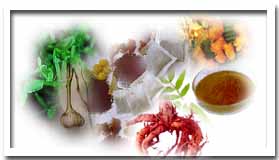| According to Ayurveda the body comprises of three primary life forces or humors. In Ayurvedic terminology they are called doshas. The state of balance or equilibrium between these three doshas in the body is called health and the state of imbalance or disequilibrium is disease. The imbalance may be in one, two or all the three doshas. For example excess of vata causes arthritis and excess of pitta causes acidity, ulcer and liver disorders. All causative factors of disease internal or external directly or indirectly create an imbalance in these doshas first and only then do the symptoms of the disease manifest. The causative factors can be the food, life style or other activities. All these factors are affecting one , two or all the three doshas. So if you want to stay healthy, you must know what are these factors which create an imbalance of doshas. As said earlier these factors could be your diet, life style or daily activities. You will soon discover that majority of foods and activities we practise in the modern world are increasing one or more doshas. They are discussed briefly as below. |
| ||
Factors responsible for increasing vata: | |||
Aggravation of vata weakens the nervous system. Other symptoms caused by excess of vata in the body are joint pains, constipation, dry skin, loss of memory, palpitation, insomnia, stiffness of muscles, weight loss, loss of strength, migraine, vertigo, tremors, grief and fear etc.,
Some of the symptoms caused by excess of Pitta in the body are hyperacidity , skin diseases, burning sensation, fever, infections, ulcers, liver disorders, malfunction of sense organs, fatigue, loss of taste and sleep disturbances. Factors responsible for increasing Kapha
Some of the symptoms caused by excess Kapha in the body are asthma, cold, congestion in the chest, anorexia and obesity. Thus we can relate every aspect of our life with these three doshas. If we have proper knowledge, we can maintain a balance of these three doshas and avoid many serious problems and can thus stay healthy. The treatment according to Ayurveda is to balance the tridosha. While making a diagnosis the Ayurvedic physician finds out which dosha is out of balance and tries to make the balance by prescribing some natural medicines, diet and life style. | |||
| The basic principles of Ayurvedic Treatment The essence of treatment is the removal of the cause and avoidance of causative factors.Ayurvedic treatment does not mean suppressing the main symptoms and creating some new ones as side effects of the main treatment. It is to remove the root cause and give permanent relief. The medicines for the treatment mainly comprises of powders, tablets, decoctions, medicated oils etc. prepared from natural herbs, plants and minerals. Because the medicines are from natural sources and not synthetic, they are accepted and assimilated in the body without creating any side effects and on the other hand, there may be some side benefits. | |||
| The famous ayurvedic physician Charaka identifies four factors that are essential for successful medical treatment : The Physician, the remedy , the nurse and the patient.The physician should be an expert in theory and in practice, skilful, and pure in body and mind.Easy availability, appropriateness, utility in a variety of forms and high quality characterize the optimal remedy. The best nurse is knowledgeable , skilful , sympathetic and pure.The ideal patient is courageous, able to describe what he or she is feeling , and remembers all the physician's instructions and follows them carefully; all these qualities help the patient get well more easily. Along with medicine, proper diet and living style is also advised. This is equally important. If we are taking a medicine to remove the root cause and at the same time we are taking some food or following a life style which is increasing the cause of disease, then we may not get well or will be getting less relief. Panch Karma therapy is also used as a treatment in many diseases. Most of us have many levels of toxins accumulated over a lifetime of indiscretions, all of which cannot be released at once otherwise they will overhelm the excretory organs and ravage the mind.Your mind and body have become habituated to these poisons, which have become part of your equilibrium equation . Removing them all at once would seriously imbalance your physical body and confuse your mind so that you no longer felt like 'yourself' .Purifying the system is a long, slow process, requiring many cycles to expunge the many layers of dirt.You must be patient with the process and with the newly developing you, just as you would be patient with a slowly growing tree. The basic principles of Ayurvedic treatment are immutable : how they are applied differs from case to case. | |||
Monday, 27 July 2009
Diseases and Cures
Subscribe to:
Post Comments (Atom)

No comments:
Post a Comment